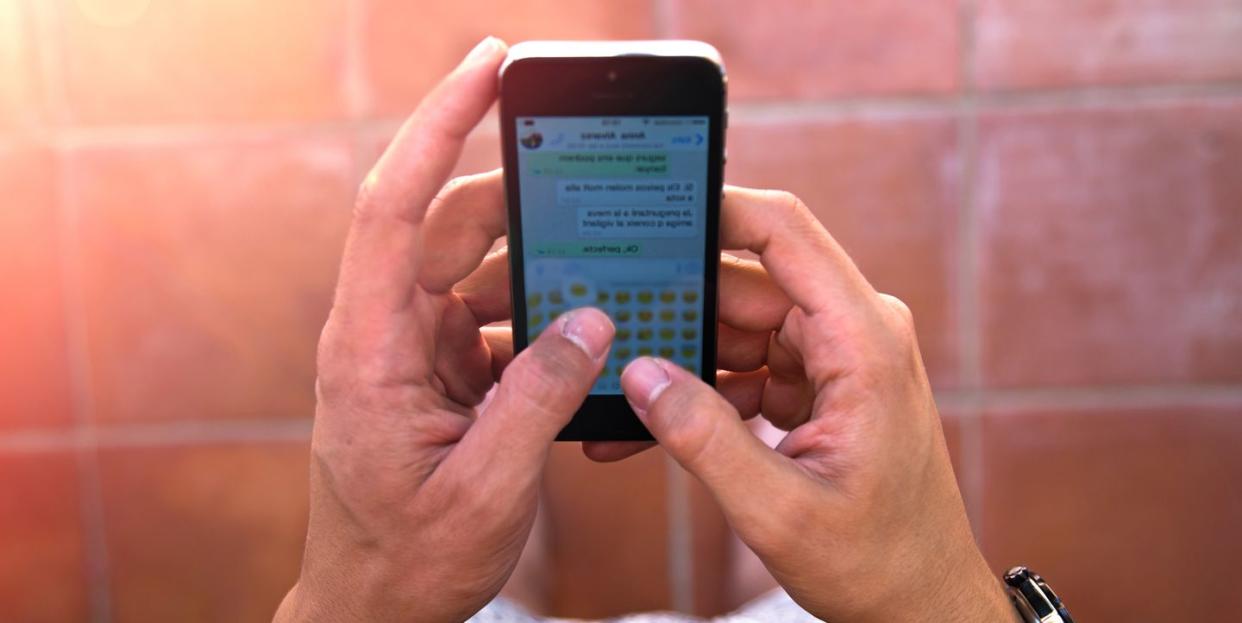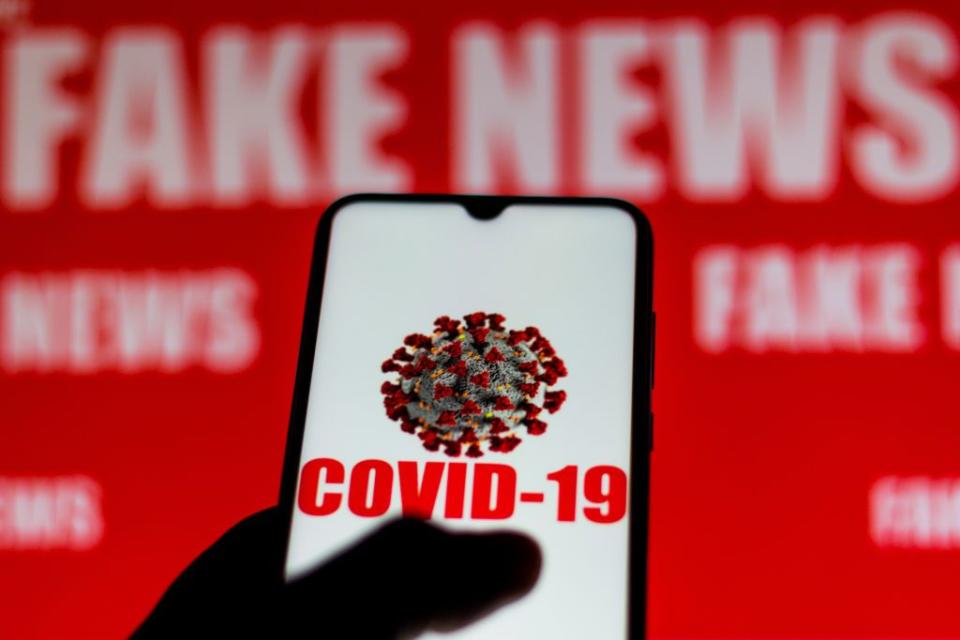A Coronavirus "Hoax" Message Is Spreading on Social Media. Here's How to Spot It

Online hoaxes operate much like the virus itself. One person can spread it to five; five people quickly spread it to 25. No one does this intentionally, of course. But it's wise to take precautions.
The latest coronavirus hoax – which has been shared via WhatsApp, email and Facebook, primarily – claims to contain a set of directives for staff at the Princess of Wales Hospital. Other variations claim to originate from the Stanford Hospital Board. (Neither is associated with the content.) Sometimes messages purport to be from a specific person, particularly someone you've never met: your nephew's boss's wife, who happens to be a world-class virologist, for example.
What's in the Hoax Message?
This is where it gets tricky. False information is often blended with facts. Some symptoms and directions are in line with those issued by the NHS. Others, such as the examples below, are inaccurate:
Hoax #1: If you can breathe in deeply and hold your breath for 10 seconds without coughing, it is likely that you are not infected. This is not an accurate way to identify whether or not you have Covid-19.

Hoax #2: The virus is sensitive to heat. Therefore, drinking tea or broth can kill the virus. Again, this is simply not true. You cannot kill coronavirus with a cup of tea. Ditto mouthwash.
Hoax #3: Drinking water every 15 minutes washes the virus into your stomach, where it is killed by gastric acid. This, again, is not true. Drinking water will not prevent infection – though staying well hydrated is very beneficial for overall health.
Hoax #4: UV rays kill the coronavirus, making sunbathing beneficial. While getting some sunlight and maintaining adequate vitamin D levels is beneficial for overall health, sunbathing will not make you immune to coronavirus, nor reduce the severity of symptoms. Similarly, leaving your belongs on a sunny windowsill will not "disinfect" them.
How Can You Spot False Information?
Do not share information communicated to you by text, WhatsApp or email, even if you trust the person sending it to you. (Editor's note: I've been sent hoax messages by friends and family whom I consider to be exceptionally smart and cautious... We all have our moments, particularly in these strange and often stressful times.)
Just because some of the information in the message is verified – the importance of washing your hands or maintaining a 2m distance from others, for example – does not mean that the rest of it is likely to be accurate, too.
If you want to share information with others, take it directly from the NHS, the World Health Organisation or trusted news sources. Note that screenshots can be forged or Photoshopped, so ensure you're looking at the website itself. In it doubt, keep it to yourself.
Sign up to the Men's Health newsletter and kickstart your home body plan. Make positive steps to become fitter, healthier and mentally strong with all the best workouts, nutrition and health advice delivered to your inbox. We’ve got you covered.
You Might Also Like

 Yahoo News
Yahoo News 
